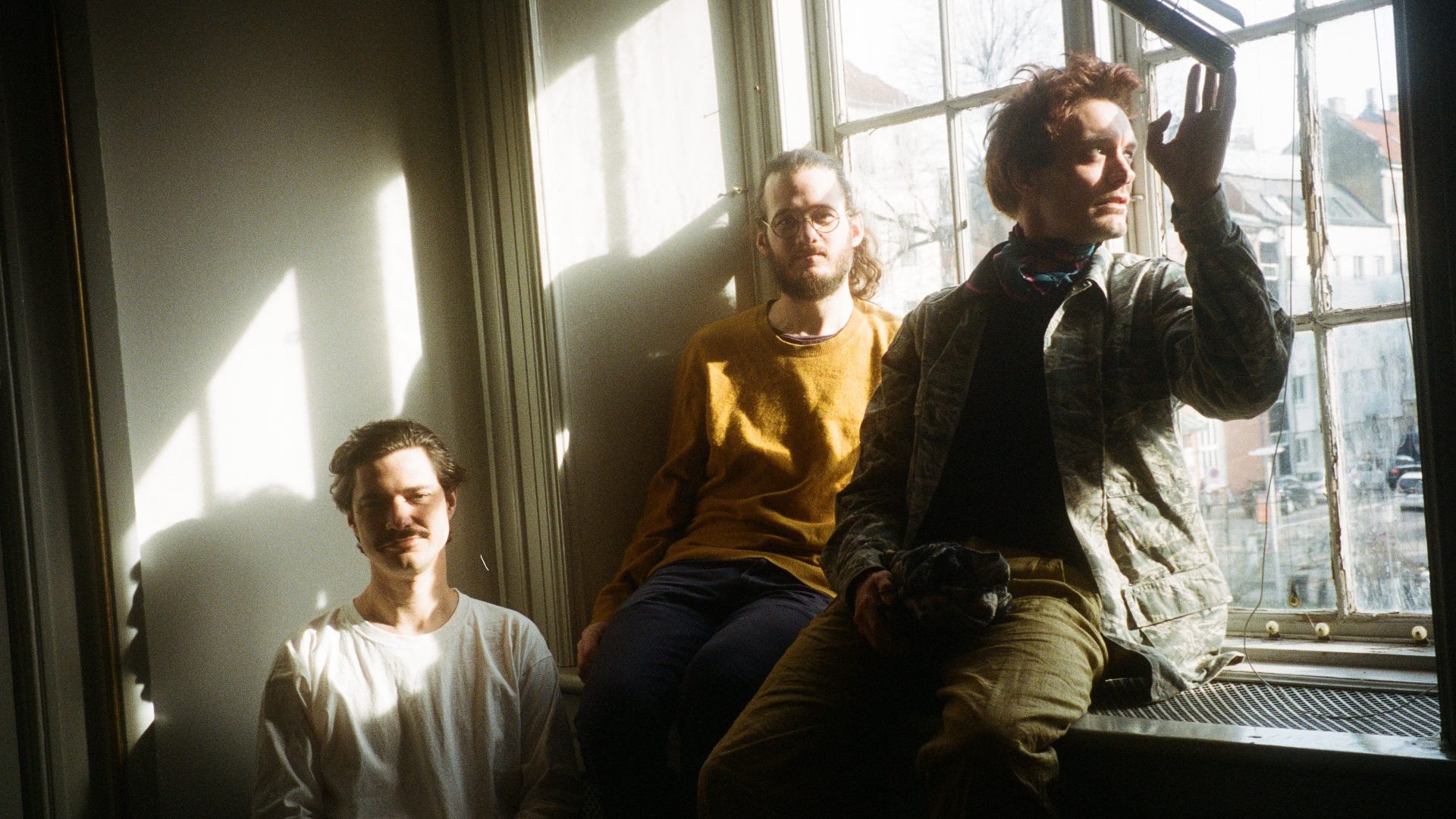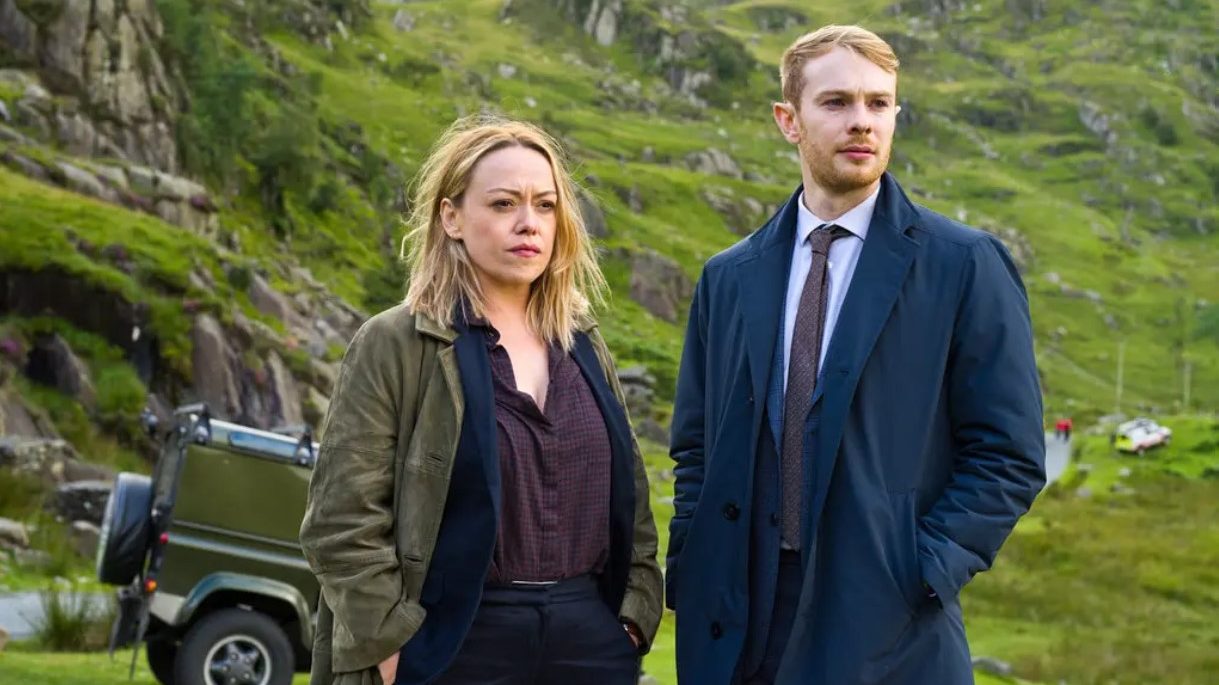With Alien Arms, Efterklang are reaching out. The Danish experimental electronic chamber pop band, coming to the end of the North American leg of their current tour this week following dates in the UK last month, have made the video for their most recent single a collaborative project with fans. The result is a powerful meditation on the post-pandemic world.
In September last year, Efterklang – whose name means “reverberation”
and who make music that is both cinematic and contemplative – released Alien Arms on a platform that allowed fans globally to respond to the song with photos and videos. What emerged was a reflection of everyday life – pets, children, domestic interiors, parks, roads – and the effect of this collage of the quotidian and the unremarkable is an incredibly moving representation of humanity.
Yet the traces of the pandemic are there – people in the familiar framing of their laptop cameras or wearing masks. One of the mask-wearers is the video’s director, Bhavesh Bangdiwala, who first made contact with the band
when he contributed images to the video for their previous single, the
emotional Hold Me Close When You Can, posting photos from his bed as he was hospitalised with Covid-19.
Bangdiwala’s films of people enjoying the evening by the Arabian Sea in his native Mumbai included in the Alien Arms video reflect the hopeful feel of the album that the song opens – Windflowers, the band’s sixth LP. Windflowers are the tiny blooms that briefly cover the forest floors of Denmark each spring. They symbolise the optimism of the new season, and
Bangdiwala has commented: “We’ve all endured a rough two years together, but the fans who participated in this video have shown that the world is still bright and blue, filled with love and hope.”
While characteristically musically low key, Windflowers is quietly upbeat
in its mood and is interested in human connection in both its lyrics and
visuals.
There’s the easy electro-pop of Dragonfly, the video finding the band and associates, all dressed in wholesome white, larking about in wheat fields with kites. The first single from the album, Living Other Lives, is triumphantly positive and although the theme – our online existence –
could easily be trite, it instead has an infectiously constructive outlook. “It’s
a fascinating world we’re living in, so strangely symbiotic and aware of what
everybody’s doing, I feel I’m living multiple lives all at once,” vocalist Casper Clausen has said of the song.
The closing track Åbent Sår (Open Wound), the only one on the album in
Danish – with the exception of their last LP Altid Sammen (Always Together), Clausen sings principally in English and sounds a lot like Chris Martin – begins delicately and pensively but lapses into the minimalist techno of Swedish electronic music producer Axel Willner, aka The Field, and it is to a
frenetic beat that the album ends.
The interest of Windflowers in connectedness was partly the result of the effect of lockdown on the band’s working methods. Deprived of the opportunity of having collaborators in the studio, Efterklang went back to
basics, self-producing the album and recording at a residential studio set
among the natural beauty of the island of Møn, south of Copenhagen.
This method brought the trio – Clausen is joined by electronics chief
Mads Brauer and bass player Rasmus Stolberg – closer together.
But in fact much of the band’s work has had an intimate feeling, the trio having grown up together on the 50,000-population island of Als in the Baltic. They formed Efterklang over 20 years ago, and debut album Tripper
(2004) already had some of their hallmarks – orchestral lushness, electronic experimentation, and emotional lyrics. By the time of 2012’s Piramida they had reached their critical height, with an album of eclectic, pensive songs with flashes of bass-heavy 80s sophisti-pop (Talk Talk are an avowed influence) and an ambient underpinning. The album was named after and inspired by the band’s audio expedition to the ghost town Piramida on Spitsbergen, a former Russian mining town. Vincent Moon, the French film-maker who has also worked with REM and Arcade Fire, made a film about the trip.
Efterklang’s commitment to connection with audiences – from their Efterkids music education initiative, to forming audience member choirs at
their gigs – has resurfaced in their projects time and again, and Stolberg has explained “We don’t want to play to people, we want to perform and make music with people.”
Alien Arms is just the latest example of Efterklang’s symbiotic relationship with their devoted fanbase, and this Easter – the first when families and
friends can be together without restriction since 2019 – the magic of the everyday seen in the single’s video, and the message of connectedness and
post-pandemic, spring-like hope of Windflowers, is a powerfully timely
one.
EFTERKLANG IN FIVE SONGS
Hands Playing Butterfly (2007)
This fragile ambient track in piano and strings was from the eclectic, experimental 2007 EP Under Giant Trees, which was a Danish chart hit.
Cutting Ice to Snow (2009)
From second album Parades (2007), this track was performed live with the
Danish National Chamber Orchestra in Copenhagen the following year and
released on the resulting live album in 2009. Magical, soaring and euphoric.
Modern Drift (2010)
The opening track of LP Magic Chairs, with bright, driving piano and a sense
of trepidation, is a meditation on the modern condition: “We could be so strong/ But we’re all afraid.”
Dreams Today (2012)
From career-defining LP Piramida, this characteristically hopeful track opens with a motorik beat formed of the sounds gathered at the Spitsbergen ghost town, before bittersweet layers of voices swell.
Alien Arms (2022)
Beginning with “Look into future mountains/ Everything else is astray”, the introspective opening track of new album Windflowers obliquely references Covid, but becomes a hymn to post-pandemic optimism.




